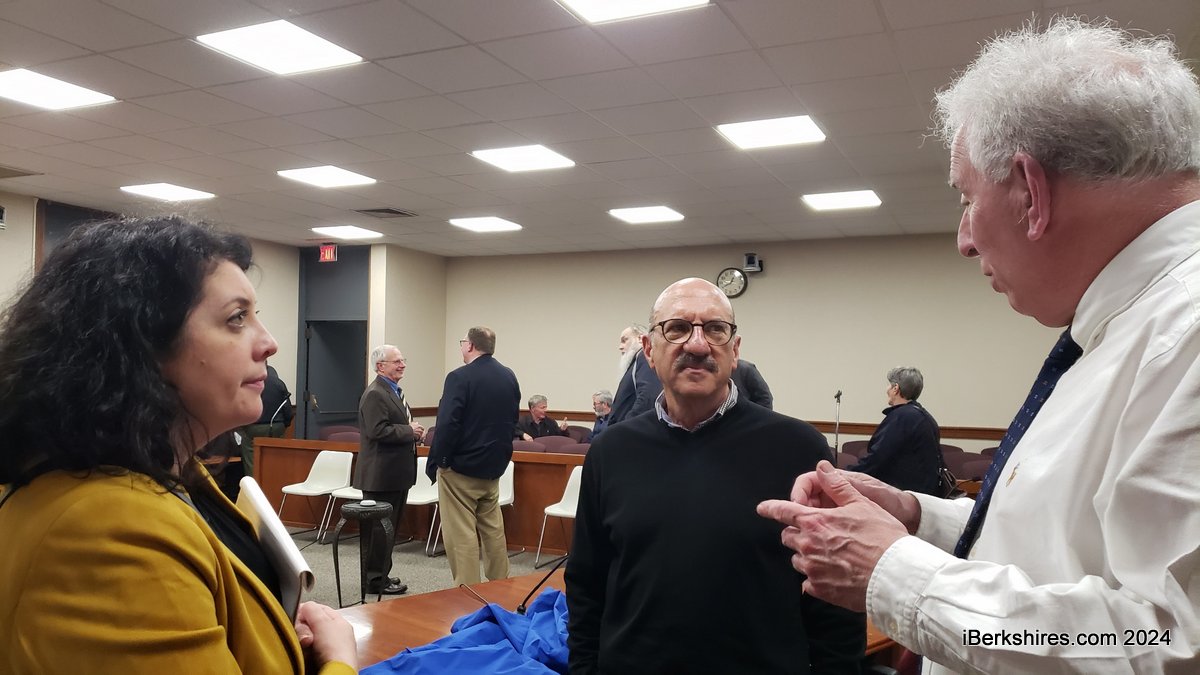Governor Orders State Offices Closed Ahead of Storm
For updates on road and traffic conditions in Massachusetts, drivers can dial 511 before heading out onto the roadways and select a route to hear real-time conditions; go to www.mass511.com for real-time traffic and incident advisory information; follow @MassDOT to receive regular updates and download MassDOT's GoTime mobile app and view real-time traffic conditions before setting out on the road.
Other important winter driving tips include:
- Clear snow and ice from all windows and lights, even the hood and roof, before driving, (start with the tailpipe).
- Leave plenty of room for stopping.
- Remember that the posted speed limits are for dry pavement.
- Use brakes carefully. Brake early. Pump brakes as you prepare to come to a full stop. It takes more time and distance to stop in adverse conditions.
- Bridge decks freeze before roadway surfaces leading up to them due to the difference in the exposure to air.
- Leave room for maintenance vehicles and plows – stay back at least 200 feet and don’t pass on the right.
- Seat belts should be worn at all times – it's the law.
- Most importantly, please travel at slow speeds.
More information on road and weather conditions can also be found by following @MassStatePolice and Trooper Dustin Fitch@DustinGFitch.
Pittsfield Fire Chief Robert Czerwinski issued the following tips to protect homes from fire.
If you are using a portable heater:
• Make sure the heater has an automatic shut-off so if it tips over, it shuts off.
• Keep anything that can burn such bedding, clothing and curtains at least 3 feet from the heater.
• Plug portable heaters directly into wall outlets. Never use an extension cord or power strip.
• Turn heaters off when you go to bed or leave the room.
If you are using a fireplace:
• Keep a glass or metal screen in front of the fireplace to prevent embers or sparks from jumping out and starting a fire.
• Do not burn paper in your fireplace.
• Before you go to sleep or leave your home put the fire out completely.
• Put ashes in a metal container with a lid. Store the container outside at least 3 feet from your home.
If you are using a wood stove:
• Have your chimney inspected and cleaned each year by a professional.
• Keep anything that can burn at least 3 feet from the stove.
• Do not burn paper in your wood stove.
• Before you go to sleep or leave your home, put the fire out completely.
Do not use candles, sterno cans or any other open flames to heat your home.
When heating your home, you need to be aware of carbon monoxide. Carbon monoxide, also known as CO, is called the “invisible killer” because it’s a colorless, odorless, and poisonous gas. More than 150 people in the U.S. die every year from accidental CO poisoning from generators or fuel-burning appliances such as furnaces, stoves, water heaters and fireplaces. Breathing carbon monoxide at high levels can kill you.
Put CO alarms inside your home to provide an early warning of increasing CO levels. These alarms should be placed in a central location outside each sleeping area and on every level of your home.
As always, make sure you have a smoke alarm on every level of your home, inside bedrooms and outside sleeping areas. Test your alarms every month. Have a home fire escape plan and practice your plan at least twice a year. Make sure everyone knows how to escape your home if there is a fire.
With the approaching snowstorm and all through the winter months, it is also important to remember to clean out around your neighborhood fire hydrants. Precious time that can be used to mount a fire attack is often lost due to our inability to find fire hydrant that buried under snow. Fire Chief Czerwinski recommends cleaning out a three (3) foot radius around all fire hydrants. This will provide ample access for a firefighter to attach hoses to the hydrant and allow space to walk and work around.
Tags: snowstorm,
















